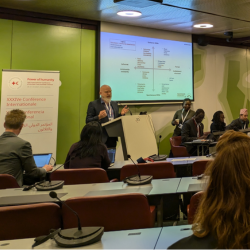-
Study
-
Quick Links
- Course Search
- Unlock Your Potential
- Still time to Apply
- Higher and Degree Apprenticeships
- Continuing Professional Development
- Book an Open Day
-
Undergraduate
- Course Search
- Application Guides
- UCAS Exhibitions
- Foundation Years
- Fees and Funding
- School & College Outreach
- Information for Parents
-
Postgraduate
- Course Search
- Application Guide
- Postgraduate Research Degrees
- Flexible Learning
- Fees and Funding
- Change Direction
- Register your Interest
-
Student Life
- Students' Union
- The Hub - Student Blog
- Accommodation
- Northumbria Sport
- Support for Students
-
Experience Northumbria
- Open Days & Events
- Virtual Tours
- Campus Tours
- Life in Newcastle
-
-
International
International
Northumbria’s global footprint touches every continent across the world, through our global partnerships across 17 institutions in 10 countries, to our 277,000 strong alumni community and 150 recruitment partners – we prepare our students for the challenges of tomorrow. Discover more about how to join Northumbria’s global family or our partnerships.
View our Global Footprint-
Quick Links
- Course Search
- Undergraduate Study
- Postgraduate Study
- Information for Parents
- London Campus
- Northumbria Pathway
- Sign up for Information
-
International Students
- Information for Students
- International Events
- Application Guide
- Entry Requirements and Education Country Agents
- Global Offices
- English Requirements
- English Language Centre
- International student support
-
International Fees and Funding
- International Undergraduate Fees
- International Undergraduate Funding
- International Masters Fees
- International Masters Funding
- International Postgraduate Research Fees
- International Postgraduate Research Funding
-
International Partners
- Agent and Representative Network
- Global Partnerships
- Global Community
-
International Mobility
- Information for Northumbria Students
- Information for Incoming Exchange Students
-
-
Business
Business
The world is changing faster than ever before. The future is there to be won by organisations who find ways to turn today's possibilities into tomorrows competitive edge. In a connected world, collaboration can be the key to success.
More on our Business Services -
Research
Research
Northumbria is a research-rich, business-focused, professional university with a global reputation for academic quality. We conduct ground-breaking research that is responsive to the science & technology, health & well being, economic and social and arts & cultural needs for the communities
Discover more about our Research -
About Us
-
About Northumbria
- Our Strategy
- Our Staff
- Place and Partnerships
- Leadership & Governance
- Academic Departments
- University Services
- History of Northumbria
- Contact us
- Online Shop
-
-
Alumni
Alumni
Northumbria University is renowned for the calibre of its business-ready graduates. Our alumni network has over 246,000 graduates based in 178 countries worldwide in a range of sectors, our alumni are making a real impact on the world.
Our Alumni - Work For Us
What will I learn on this module?
You will be able to develop your knowledge and critical appreciation of the key components of accounting and finance and be able to apply these within the context of a successful public, private or not-for-profit organisation. Specifically, this module provides you with a foundation in the key principles of corporate financial management and their practical application, covering the issues of cost of capital, capital budgeting and capital structure, financial markets, analysis and investments in a world where finance is an international language. Key concepts in relation to investment and financing decisions, operational controls and structures of governance, financial health and growth strategies are all included. You will be able to build your knowledge starting with how to choose and appraise an investment decision; dealing with operational matters that keep the business running; using finance and accounting techniques to strategically manage the direction of the business and finally, looking at how corporate expansion can successfully and sustainably take place. This module is designed to strengthen your ability in applying knowledge to complex issues, both systematically and creatively, so that theory is converted into practice from a critical and informed perspective in order to enhance organisational effectiveness and competitiveness. The Module also investigates how financial information can be used to inform strategic plans and operational decisions. Reflective of the research strength within the Business School within responsible business, you will be encouraged to engage with CSR and ethical decision making.
How will I learn on this module?
The module is delivered through a combination of tutor-directed learning, group learning and independent learning. In the taught sessions, an interactive approach will draw upon the directed learning undertaken and participants’ own experiences. Throughout, the emphasis will be on high levels of participation, both individually and within small groups or teams.
Participants can therefore expect the reflective-practitioner approach to learning to be embedded in all sessions through undertaking activities which facilitate them to apply theory to ‘real-life’ situations, critically analysing and making recommendations for appropriate ways forward for the organisation/individual. The module aims to provide impact to your day to day professional role and sessions will be structured to ensure that you can take the learning from the module and apply it directly in your workplace.
Directed learning will centre upon a range of activities including pre-reading, preparation for interactive activities and use of the discussion board on the e-learning platform.
Independent learning will centre upon the students identifying and pursuing areas of interest in relation to the subject and by providing deeper/broader knowledge and understanding of the subject through a range of learning activities that will include extended reading, reflection, research etc.
Critical reflection on knowledge, experience and practice underpins the learning and teaching philosophy along with the explicit development of competence. You are particularly encouraged to bring examples from the workplace into the classroom to share with each other and with the tutors. The module will also incorporate sessions delivered by external practice experts as well as from academic experts in the field drawn from the Business School.
How will I be supported academically on this module?
The module is delivered by an experienced teaching team who will provide ongoing advice and guidance on the module and your progress. You will be supported by a Teaching and Learning Plan which outlines the structure and content of the formal sessions, and also appropriate tutor-directed learning and independent reading. The module is also supported by an online Blackboard site which includes learning materials and additional resources. Peer learning is an important part of the MBA programme and you will be encouraged to form learning sets to enable effective peer support for learning.
What will I be expected to read on this module?
All modules at Northumbria include a range of reading materials that students are expected to engage with. Online reading lists (provided after enrolment) give you access to your reading material for your modules. The Library works in partnership with your module tutors to ensure you have access to the material that you need.
What will I be expected to achieve?
Knowledge & Understanding:
On completion of the module you will be able to:
1. Demonstrate a critical understanding of key aspects of accounting (both financial and management) and finance (corporate).
Intellectual / Professional skills & abilities:
On completion of the module you will be able to:
2. Demonstrate a critical understanding of the ethical and practical implications of accounting and finance.
Personal Values Attributes (Global / Cultural awareness, Ethics, Curiosity) (PVA):
On completion of the module you will be able to:
3. Demonstrate a critical understanding of the code of ethics and code of conducts required of professionals and organisations;
4. Demonstrate a critical awareness of multicultural teamwork.
How will I be assessed?
Formative assessment: This will take place through group work, assignment discussion and reflection, discussion board activity on the e-learning platform, case study activity, and theory/practice related discussions. Criteria will be provided to enable you to understand what is expected and how you will be assessed on your performance. You are required to demonstrate self-reflection and reflective practice where appropriate. Formative feedback will be provided throughout the module, particularly in relation to seminar tasks. You should, however be aware that formative feedback can, and will, occur in any communication with an academic tutor.
Summative assessment: A 3000 word individual assignment on an accounting and finance topic of strategic importance. The assignment is weighted at 100% and assesses all the module learning outcomes.
Pre-requisite(s)
None
Co-requisite(s)
None
Module abstract
Understanding how accounting and finance can be used for strategic advantage can help you advance to senior positions. This module will develop your knowledge and critical appreciation of the key components of accounting and finance and enable you to apply these within the context of a successful commercial organisation. The module will include key concepts in relation to investment and financing decisions, operational controls, and financial health and growth. You will be able to build your knowledge starting with how to choose and appraise an investment decision; dealing with operational matters that keep the business running; using finance and accounting techniques to strategically manage the direction of the business and finally, to understand how corporate expansion can successfully and sustainably take place. Reflective of the research strength within the Business School within responsible business, you will be encouraged to engage with CSR and ethical decision making.
Course info
Credits 10
Level of Study Postgraduate
Mode of Study 15 months
Location Singapore
City Singapore
Start September, December, March or June
All information is accurate at the time of sharing.
Full time Courses are primarily delivered via on-campus face to face learning but could include elements of online learning. Most courses run as planned and as promoted on our website and via our marketing materials, but if there are any substantial changes (as determined by the Competition and Markets Authority) to a course or there is the potential that course may be withdrawn, we will notify all affected applicants as soon as possible with advice and guidance regarding their options. It is also important to be aware that optional modules listed on course pages may be subject to change depending on uptake numbers each year.
Contact time is subject to increase or decrease in line with possible restrictions imposed by the government or the University in the interest of maintaining the health and safety and wellbeing of students, staff, and visitors if this is deemed necessary in future.
Useful Links
Find out about our distinctive approach at
www.northumbria.ac.uk/exp
Admissions Terms and Conditions
northumbria.ac.uk/terms
Fees and Funding
northumbria.ac.uk/fees
Admissions Policy
northumbria.ac.uk/adpolicy
Admissions Complaints Policy
northumbria.ac.uk/complaints









